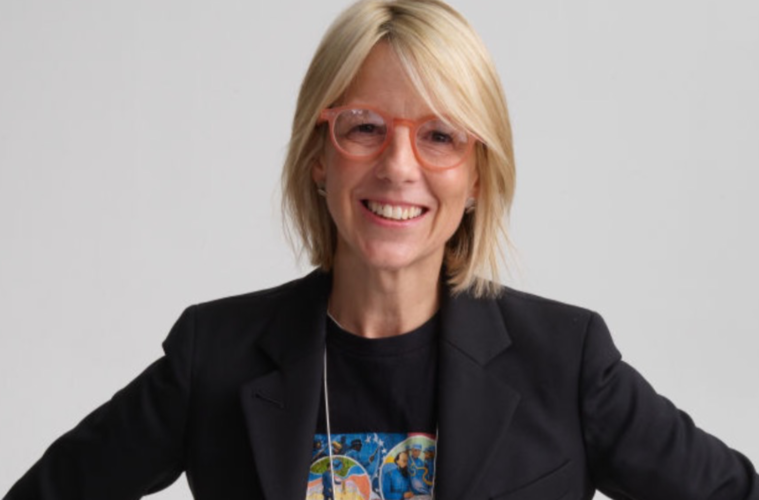As a documentary filmmaker, Xan Parker ’92 had driven through the frozen forests of Russia searching for stray tiger cubs and had helped chronicle a Mississippi Delta family struggling with the crippling effects of poverty. But nothing had prepared her for the utter devastation of the wildfire that burned Paradise, Calif., to the ground.
Just two months after the November 2018 fire, which killed 85 people and destroyed 95% of the town’s structures, Parker became the creative producer of Rebuilding Paradise, a film she worked on with Academy Award–winning director Ron Howard. During a 10-month period, she spent 75 days with the crew filming the 91-minute documentary, commissioned by National Geographic and released in 2020.
“It was heartbreaking to be with people who were in such incredible need,” Parker recalls. “But I learned more about the human condition than on any of my other projects.”
The opportunity to discover something new and tell stories on film is what attracted Parker to documentaries after she graduated from Colgate with an English degree. Her interest in filmmaking was sparked by a course she took at Colgate — Motion Picture Production, taught by Professor (now emeritus) John Knecht. “It set me on a path I’ve loved being on since,” she says. “The relationship between form and content, for me, started in that class.”
After graduation, she was living in her hometown of Baltimore when she went to the Charles Theatre to see Brother’s Keeper, a 1992 documentary about an alleged murder in a family of four brothers in upstate New York, which was co-directed by Joe Berlinger ’83 (with Bruce Sinofsky). “I immediately knew this is the kind of filmmaking I wanted to do,” Parker says. “All cinema has a kind of magic to it. And here was a documentary film that presented like a scripted feature. I was mesmerized.”
She landed a position as an associate producer at Maryland Public Television and later was hired at the same New York City production company where Berlinger had worked. In her nine-year stint at Maysles, Parker learned how to make documentaries in the cinema verite style.
The first film she worked on was LaLee’s Kin: The Legacy of Cotton, which told the story of a family in the Mississippi Delta contending with poverty and neglect as a result of systemic racism and slavery. The film was nominated for an Academy Award for Best Documentary in 2002. “It was the best possible film school, getting to work on the film, from the beginning of the research all the way to distributing and marketing,” she says.
Parker married Marwan Khuri ’92, and after they had two children, she took a break from documentary filmmaking. She ran the production division of branding agency DeSantis Breindel, which produced branded content and short films for the agency’s clients.
When Academy Award–winning director Ross Kauffman recruited her to produce Tigerland, a documentary about efforts to conserve the tiger population in Russia and India, Parker returned to her passion. The experience of creating films such as Tigerland, which took her on location, is what Parker loves about her work. “In documentary [filmmaking], every project is a new story, a new adventure. Every film is an opportunity to go places, meet people, learn things, and become a mini-expert on something,” she says.
“All cinema has a kind of magic to it. And here was a documentary film that presented like a scripted feature. I was mesmerized.”
Her most recent film, The Big Payback, chronicles the first tax-funded reparations bill in American history, which was passed in Evanston, Ill., and will provide a total of up to $10 million to Black citizens over 10 years. The film premiered at the Tribeca Film Festival this past June and will air on PBS’s Independent Lens series in early 2023. Her next project will be an HBO documentary about how communities in Cape Cod are reacting to the recent influx of great white sharks.
“My goal is to continue producing films that are meaningful and relevant,” she says, “and it’s truly fulfilling to be able to set them in motion and see them all the way through.”

